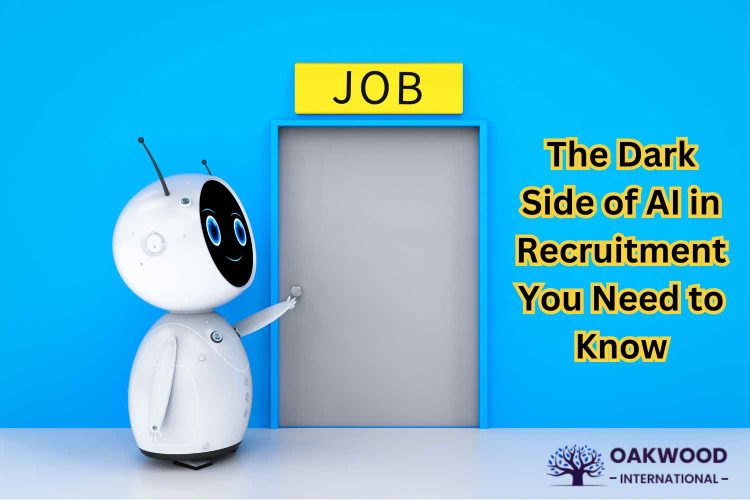AI in recruitment is transforming how businesses approach hiring, but are we fully aware of the risks? While it promises efficiency and precision, it also raises serious questions about fairness and transparency. For those diving into HR Leadership Courses, understanding the ethical implications is critical, especially in Ethical Considerations of AI in Hiring.
Is your AI tool unintentionally reinforcing biases? Could it be undermining diversity efforts instead of promoting them? In this blog, we’ll uncover the dark side of AI in recruitment.
Table of Contents
- The Rise of AI in Recruitment
- Key Issues in AI-driven Recruitment
- Conclusion
The Rise of AI in Recruitment
For companies trying to expedite hiring procedures, artificial intelligence in recruitment has evolved into a potent weapon. AI has revolutionised our approach to hiring, from automated CV screening to chatbots conducting initial interviews.
Quickly scanning hundreds, even thousands, of resumes, algorithms can find critical competencies matching the job description. Allowing businesses to concentrate on the most qualified applicants reduces the time required for a human recruiter to sort through resumes.
Furthermore, AI-driven solutions can aid in improving job descriptions, cultural fit screening, and candidate success prediction inside the organisation. That’s why many businesses are joining the AI bandwagon, looking for a more affordable hiring process. But it comes with its challenges.
Key Issues in AI-driven Recruitment
While AI-integrated recruiting systems can simplify processes, it also raises questions about privacy, fairness, and openness. These are the main issues in AI-driven hiring:
Bias and Discrimination in AI Systems
The possible bias of artificial intelligence in recruitment raises one of the most important issues. AI systems are only as good as the data they have been educated on. Artificial intelligence will surely reflect those prejudices should the training data be biased. Even if the job criteria are objective, an artificial intelligence system educated on previous recruiting data from a company with mostly male employees may prefer male candidates over female ones.
This inclination affects not only gender but also race, age, disability, and other protected traits. Studies have indicated that artificial intelligence can reinforce already ingrained prejudices, supporting candidates who fit those chosen in past years. This can especially marginalise under-represented groups and impede workplace initiatives to support diversity and inclusion.
The Lack of Transparency
The lack of openness in how these algorithms operate adds another problem with artificial intelligence-assisted hiring. Many artificial intelligence systems are designed as “black boxes,” and even the programmers of the algorithms cannot completely know how they make their conclusions.
Lack of openness makes it challenging for recruiting officials and prospects to believe in the system. Should an artificial intelligence tool reject a candidate, there might be no obvious reason for rejection, depriving candidates of information on evaluating their applications.
Businesses certainly cannot find and fix any fundamental flaws in their AI systems without openness. This can result in a lack of responsibility since it is more difficult to trace where mistakes occur. A candidate who believes their AI-driven option was unfairly turned down could have no means of contesting that choice, which would cause resentment and mistrust.
The Privacy Concerns of AI in Hiring
Furthermore, major privacy issues are generated by the growing use of artificial intelligence in hiring. Candidates are left open to possible data misuse when artificial intelligence systems handle enormous volumes of it. From social media profiles to personal preferences and behavioural data, artificial intelligence systems can gather delicate information about candidates that transcends what is required for the recruiting process.
For instance, even if these activities might not be pertinent to a candidate’s job credentials, AI systems used for screening can access their social media presence and assess online conduct. This data collection violates privacy and makes applicants feel their personal lives are under needless scrutiny.
Conclusion
Although artificial intelligence could completely transform hiring, it is important to be aware of the possible hazards involved. Businesses may use artificial intelligence without sacrificing justice or confidence by prioritising open policies, diversity in training data, and data privacy. Oakwood International can assist you progress your knowledge and apply best practices to guarantee a responsible and ethical approach if you want to negotiate the complexity of AI-driven recruitment.











